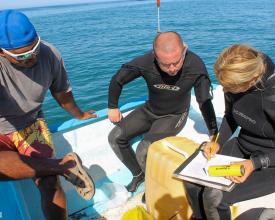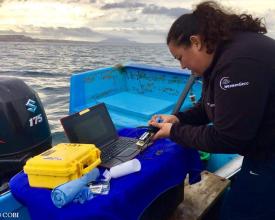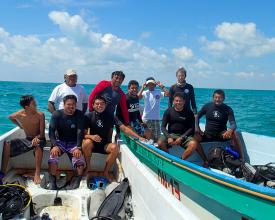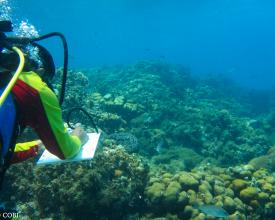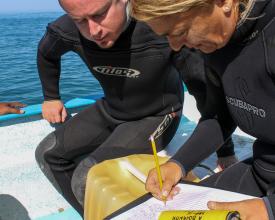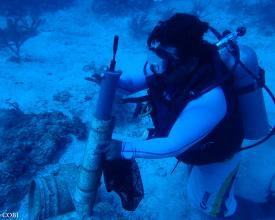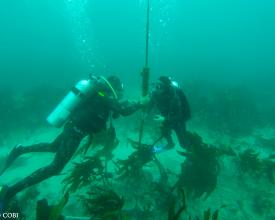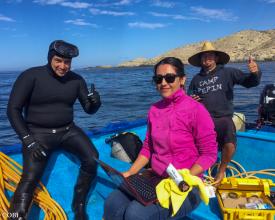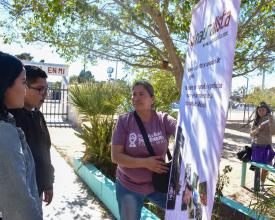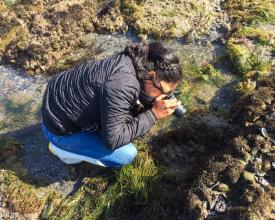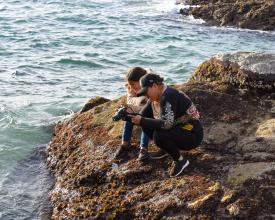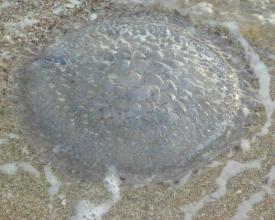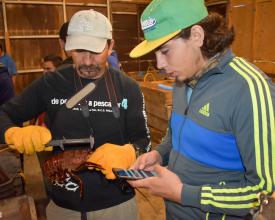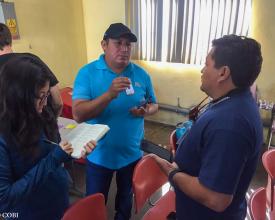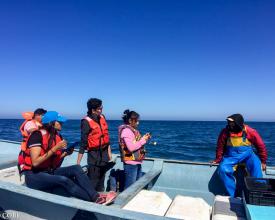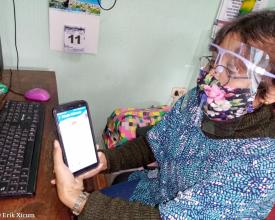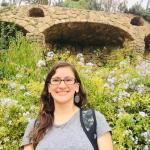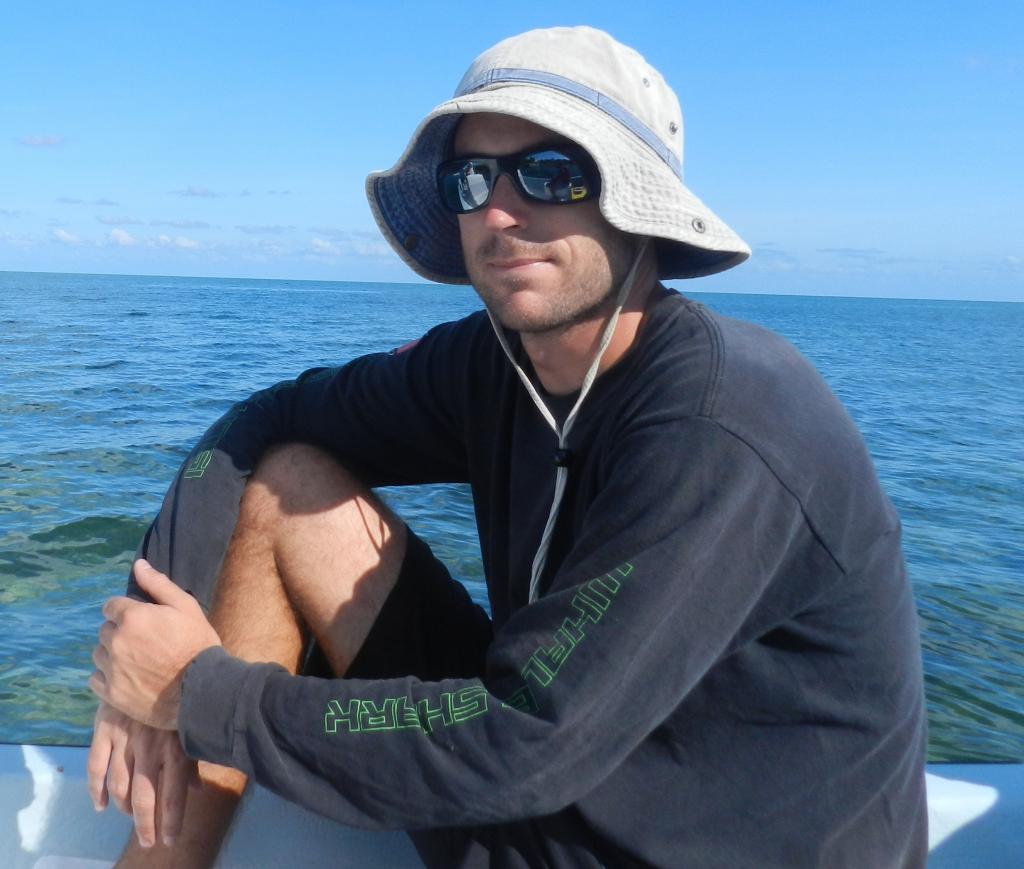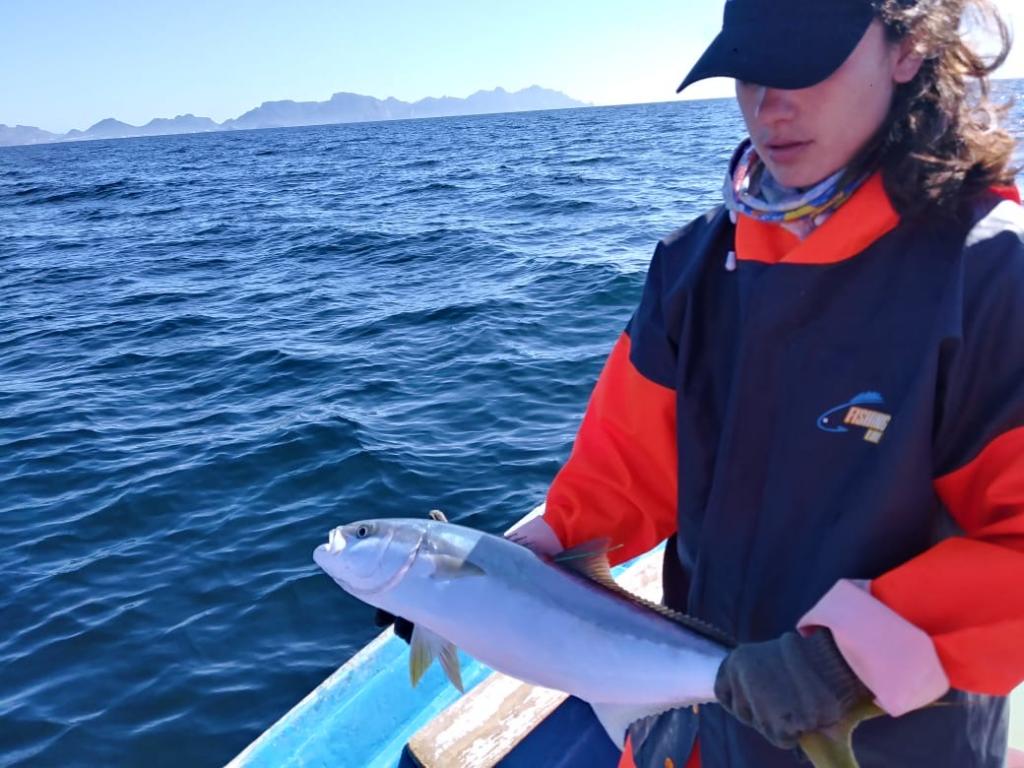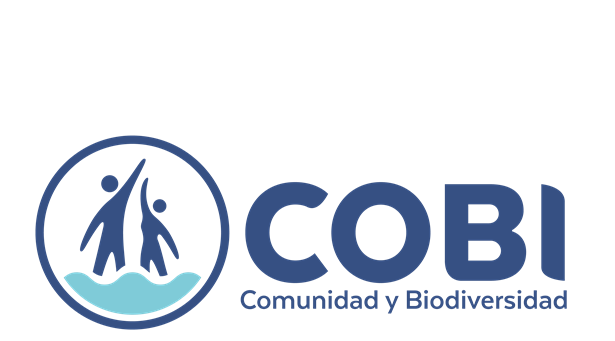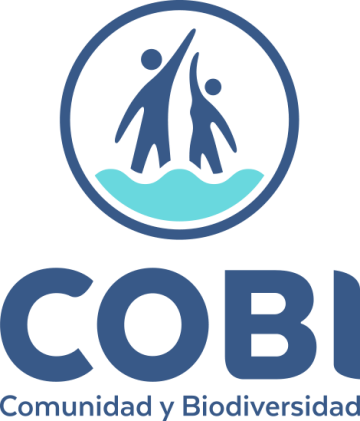
Citizen science for fisheries sustainability
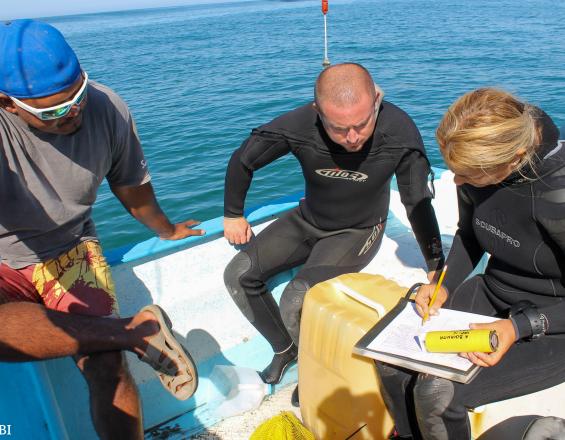
Small-scale fisheries are recognized as data poor. The multitude of landing sites, the number of people involved in the value chains, the informality of much of the small-scale fishing economy and the lack of resources to monitor catches, lead us to seek solutions to improve science-based management decision making. Throughout 22 years, COBI has sensitized communities on the importance of data collection and conducted workshops to train them in these activities, sharing the results and analysis obtained, and encouraging them to share their knowledge nationally and internationally. In this way, we have strengthened the empowerment of fishing communities as citizen scientists, uniting their traditional knowledge with scientific robustness for the management of information in favor of sustainable fisheries.
Context
Challenges addressed
- Lack of formal recognition of citizen science in Mexico and Latin America. It does not exist in the law.
- He check the quality of the data generated and promote acceptance for use in formal decision making processes before the government and academic sector.
- Long-term financial sustainability in certain activities, such as community monitoring (since it generates a cost for the equipment used and the technical-human capacity).
- Unfortunately, there is still a perception that requesting information from fishermen and fisherwomen is the same as involving them in science. This is not the case, and results in an unequal transfer of knowledge. Ways must be found to incorporate traditional knowledge in the design, implementation and interpretation of study results. They must be active participants.
Location
Process
Summary of the process
Citizen science can take many forms. The components associated with this solution show examples of how fishing communities are doing citizen science. In some cases, this has been achieved through digital applications such as PescaData (Block 3) and NaturaLista (Block 2), which systematize and scale data collection, contributing to the conservation, knowledge and sustainability of fishery resources. In other cases, women and men from the communities are trained, for example, to monitor the impacts of climate change (sea temperature increase, oxygen depletion, etc.) and generate information on its effects on the ecosystem and marine resources (Block 1).
All solutions and their components should consider the 10 Citizen Science Principles developed by the European Association for Citizen Science, with the aim of promoting inclusive, robust and transparent processes (see this document in the resources section).
Building Blocks
Community-based climate change monitoring
Fishing communities are witnessing the effects of global changes every day. Aware that this impacts fishery resources and degrades marine ecosystems, fishing communities in Mexico have become interested in better understanding the effects of climate change and other local changes, giving them the opportunity to make better mitigation, prevention and adaptation decisions.
Through citizen science and collaboration with academics, a community monitoring program with oceanographic sensors has been implemented in 19 fishing communities in Mexico since 2011. Both women and men have been trained, involved and responsible for data collection and analysis. It has been proven that the training of mixed teams allows the integration of women in areas traditionally perceived as masculine (such as underwater activities), contributing to gender equality.
Today, fisherwomen and fishermen know how oceanographic sensors work, download the information collected, interpret the results and use them to make decisions related to the use of fishery resources, with a sustainable approach and seeking solutions to adapt to climate change.
Enabling factors
- Multi-sectoral participation in climate change monitoring.
- Strengthening local capacities for community-based climate change monitoring.
- The exchange and analysis of information at the local and regional level.
- The relevance of oceanographic data and its interpretation for local decision making is evident to the community.
- The integration of mixed teams, since it favors performance and has a positive impact on the community.
Lesson learned
- Training and community participation in climate change monitoring provides information to improve decision-making, mitigate the effects on fisheries, and adapt. Monitoring also provides tools to participate in discussion forums with the government, academia, civil society organizations, and the fishing sector itself.
- Just as participation is key, so is the systematization and rigor of data collection in conjunction with the fishing communities.
- Multisectoral participation allows better decisions to be made in terms of fishing and conservation, integrating traditional and scientific knowledge.
- The information obtained from oceanographic monitoring has empowered communities and given them a better understanding of the impacts of climate change. They have become an example of multi-sectoral partnerships, have participated in national and international conferences, and have inspired other communities and the government sector to replicate this effort.
NaturaLista: citizen observations of biodiversity
Citizen science has influenced resource management, contributing to the improvement of public policies and strengthening the capacity of communities to address environmental problems. Also, citizen science efforts have contributed to conservation, the recording of biodiversity, and help empower communities by breaking down barriers that separate science and society.
Citizen science is being driven by technology and digital platforms, helping to collect and organize information and make it available to all. The NaturaLista initiative, for example, is a digital space for recording and organizing observations of nature through photographs, meeting other enthusiasts, and learning about the nature of Mexico and the world. Through this platform, awareness of biodiversity has been created in the communities and the exploration of local environments is promoted. Thus, fishermen and fisherwomen can contribute by recording species and being part of the change, keeping in touch with researchers and collaborating in different projects.
Enabling factors
- Training the community in taking photographs, and in the use, management and scope of the digital platform.
- A greater impact is generated in the communities when the scientific information contained in the platforms is suitable for all audiences.
- It is key to integrate leaders and innovators of the coastal communities as users, so that they become examples to follow and more people join this initiative.
Lesson learned
- The use of new platforms and digital tools can sometimes be a barrier for some members of coastal communities, so training and constant monitoring is required.
- Some communities have limited internet service. This can lead to disinterest in continuing to contribute to the platform, as a connection is needed for photographs to be uploaded to the platform.
- One way to motivate communities to use Naturalista is to provide feedback and follow up on the records they document through their photographs, sharing their use and the comments made by others. In some cases, the photographs have even identified new species and range extensions for Mexico and worldwide.
- Having photographic equipment suitable for use in the high seas is very important, since going out to sea every day can document incredible things.
Your data at the moment: PescaData and mobile technology
In developing countries such as Mexico, there are areas of opportunity for citizen science to play an important role in resource management. In small-scale fisheries, product landing sites are often widely distributed and with a high number of operators. In these situations, participatory methods of digitized data collection can be very useful. Thus, they play an important role in obtaining fishery-generated information and facilitate the information collection process.
To this end, in 2020 COBI created the digital platform PescaData. A mobile application where the productive sector can register their fishing data using digital logs, encouraging fisheries to have a systematic record of their catches and contribute to the knowledge of the species. Also, PescaData facilitates the connection with fishing communities from different geographic locations, through the sale of products and sharing solutions related to fishing. Finally, PescaData is a free application, where the information recorded is available only to the user, promoting digital sovereignty.
Enabling factors
- Strengthening the digital capacities of fishermen and fisherwomen, as well as species identification to facilitate catch data collection.
- Creating awareness in the communities about the importance of collecting data and the usefulness of these data (e.g. observing trends in catches, seasonality and distribution of species).
- Encouraging participatory and transparent processes in data collection.
Lesson learned
- The functionality and usefulness of the PescaData platform must be made clear, emphasizing that the information recorded is the property of the users and the sharing of this information can only be done through formal agreements between the interested party and the user.
- There may be resistance from the fishing sector in adopting digital tools, knowledge of the context, patience, follow-up and empathy are required to achieve this goal.
- Support staff and dissemination materials are required to ensure that as many people within the fisheries sector as possible use the digital platform.
- The best way to encourage the use and add users to PescaData, or any other digital platform, is through the experience of using it, and that the user shares his or her experience with others.
- The use of digital platforms such as PescaData helps to have a transparent collaboration between the productive sector and the government sector, academia and civil society organizations.
Impacts
During the implementation of this solution, we have witnessed the empowerment of 34 fishing communities. One of the positive impacts has been to promote the participation of people involved in the fisheries, incorporating elements of their traditional knowledge in the fisheries assessment and favoring co-responsibility in the management of fishery resources. In addition, since the data is collected by the fishermen and fisherwomen (around 100 participants), they have more confidence in the information because they do not depend on external evaluations that can be interpreted in the community as biased or operating according to an agenda. Another positive impact is related to the fact that, since the fishermen and fisherwomen are the ones who collect the data, operating costs are reduced (up to 60%), avoiding the expenses involved in transporting scientists to the communities. Also, the implementation of citizen science makes it possible to operate science programs on a larger scale, reaching more participants and geographic sites. Finally, citizen science programs can be scientifically robust. Many studies worldwide have proven that a well-designed program, with appropriate methodology, training and tools, generates reliable and useful information for scientific analysis or publication.
Beneficiaries
The small-scale fishing sector in Mexico and fishery management decision makers.
Sustainable Development Goals
Story
At COBI, we have witnessed clear examples and results from implementing citizen science. The creation and implementation of marine reserves and climate change monitoring, for example, has created the need for scientific data for decision making. However, many fishing communities are located in remote areas where accessing information is costly in time and resources. In Mexico, the training of hundreds of fishermen and fisherwomen in scientific practices has made it possible to justify and decree more than 39 marine reserves (204 km^2), collect data on more than 450 species of invertebrates and fish, and request changes in closures due to oceanographic and temperature variations. Monitor diver Elsa comments: "We generate an impact by collaborating as equals for data collection, this creates results and generates a thorn in the side of other communities. This motivates us to continue working for the community.

